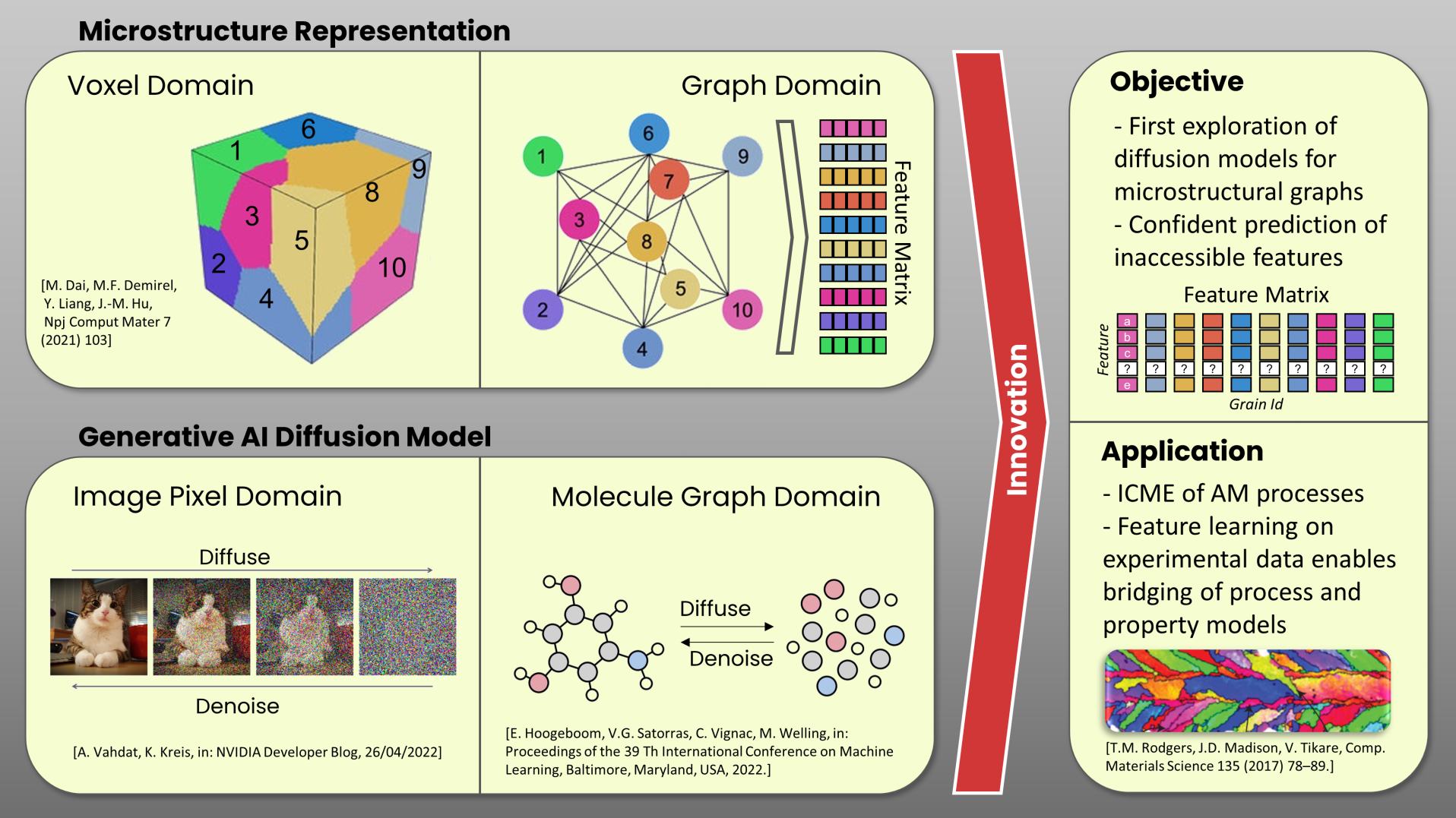Duration: 24 months
Mapping process-structure-property (PSP) relationships is critical for advancing materials design. While
data-driven and machine-learning approaches have accelerated the development of such mappings in metallic systems, conventional image-based microstructure representations pose a computational bottleneck for high-throughput analysis. Inspired by recent successes of graph-based models in molecular design and protein structure prediction, we investigate graph representations as a more efficient and interpretable alternative for metallic microstructures. In this framework, graph nodes correspond to individual grains, while edges encode grain boundary characteristics.
Current research predominantly focuses on discriminative models—using graph representations of microstructures to predict mechanical properties—thus covering only part of the PSP relationships. To enable a more comprehensive understanding, we propose a generative approach: a conditional denoising-diffusion-based framework that predicts microstructures in graph form as a function of processing parameters or mechanical properties. The diffusion model iteratively refines a noisy graph representation, generating new, physically meaningful microstructures conditioned on target properties. By reducing computational redundancy and capturing critical interdependencies, this approach will enhance the efficiency of PSP mapping and accelerate materials development. The proposed framework is designed to be broadly applicable across various material
systems and properties.

